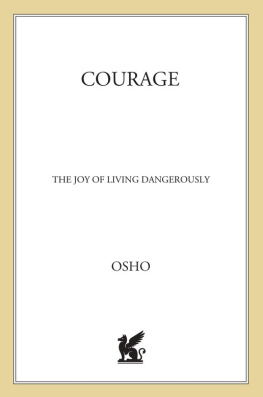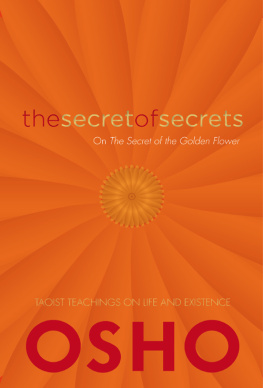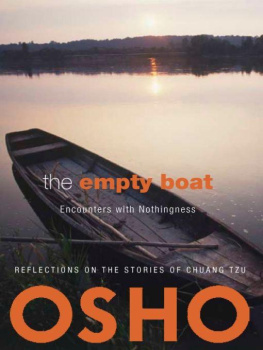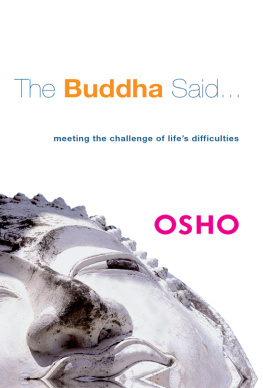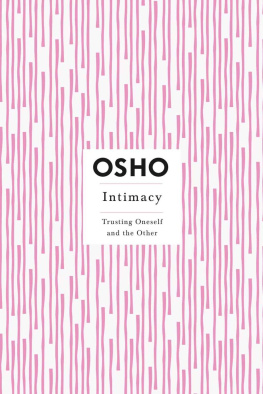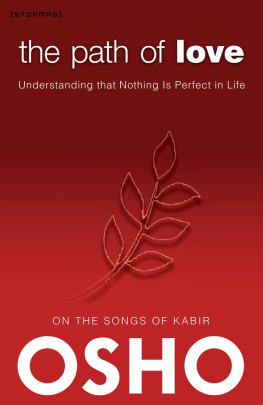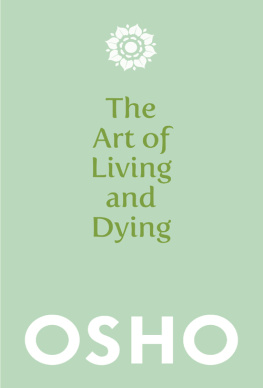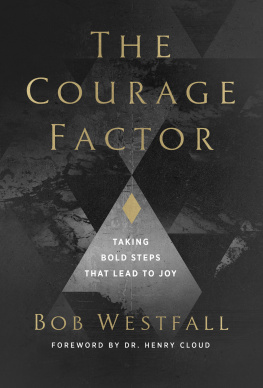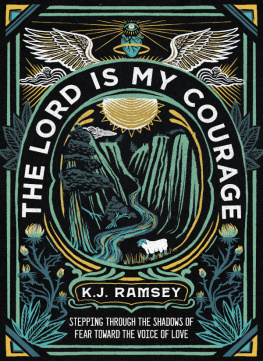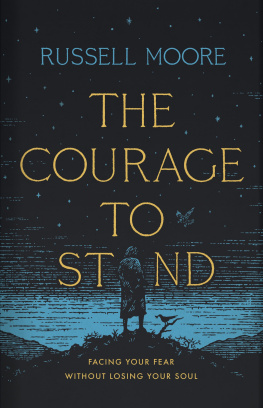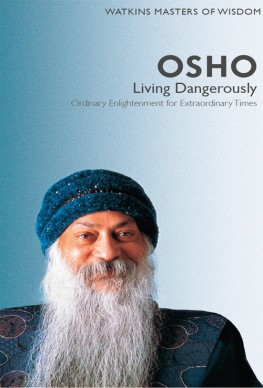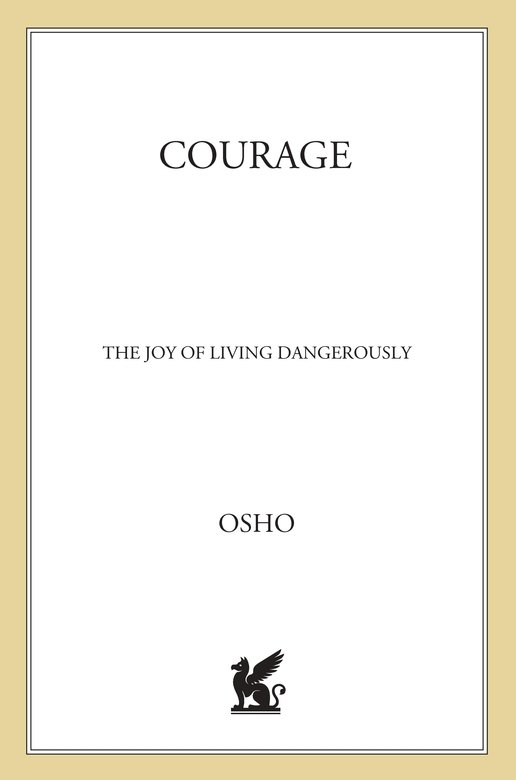O sho is a contemporary mystic whose life and teachings have influenced millions of people of all ages and from all walks of life. He has been described by the Sunday Times in London as one of the 1000 Makers of the 20th Century and by Sunday Mid-Day (India) as one of the ten peoplealong with Gandhi, Nehru, and Buddhawho have changed the destiny of India.
About his own work Osho has said that he is helping to create the conditions for the birth of a new kind of human being. He has often characterized this new human being as Zorba the Buddhacapable of enjoying both the earthy pleasures of a Zorba the Greek and the silent serenity of a Gautama the Buddha. Running like a thread through all aspects of Oshos work is a vision that encompasses both the timeless wisdom of the East and the highest potential of Western science and technology.
He is also known for his revolutionary contribution to the science of inner transformation, with an approach to meditation that acknowledges the accelerated pace of contemporary life. His unique Active Meditations are designed to first release the accumulated stresses of body and mind, so that it is easier to experience the thought-free and relaxed state of meditation.
Osho Commune International
O sho Commune International, the meditation resort that Osho established in India as an oasis where his teachings could be put into practice, continues to attract thousands of visitors per year from more than one hundred different countries around the world. Located about one hundred miles southeast of Bombay in Pune, India, the facilities cover thirty-two acres in a tree-lined suburb known as Koregaon Park. Although the resort itself does not provide accommodation for guests, there is a plentiful variety of nearby hotels.
The resort meditation programs are based on Oshos vision of a qualitatively new kind of human being who is able both to participate joyously in everyday life and to relax into silence. Most programs take place in modern, air-conditioned facilities and include everything from short to extended meditation courses, creative arts, holistic health treatments, personal growth, and the Zen approach to sports and recreation. Programs are offered throughout the year, alongside a full daily schedule of Oshos active meditations.
Outdoor cafes and restaurants within the resort grounds serveboth traditional Indian fare and a variety of international dishes, all made with organically grown vegetables from the communes own farm. The campus has its own private supply of safe, filtered water.
For booking information call (323) 563-6075 in the USA or check osho.com for the Pune Information Center nearest you.
For more information: www.osho.com
A comprehensive Web site in different languages, featuring an online tour of the meditation resort, information about books and tapes, Osho information centers worldwide, and selections from Oshos talks.
Osho International
570 Lexington Avenue
New York, NY 10022
Telephone: (212) 588-9888
Fax: (212) 588-1977
email: osho-int@osho.org.
In the beginning there is not much difference between the coward and the courageous person. The only difference is, the coward listens to his fears and follows them, and the courageous person puts them aside and goes ahead. The courageous person goes into the unknown in spite of all the fears .
C ourage means going into the unknown in spite of all the fears. Courage does not mean fearlessness. Fearlessness happens if you go on being courageous and more courageous. That is the ultimate experience of couragefearlessness: That is the fragrance when the courage has become absolute. But in the beginning there is not much difference between the coward and the courageous person. The only difference is that the coward listens to his fears and follows them, and the courageous person puts them aside and goes ahead. The courageous person goes into the unknown in spite of all the fears. He knows the fears, the fears are there.
When you go into the uncharted sea, like Columbus did, there is fear, immense fear, because one never knows what is going to happen. You are leaving the shore of safety. You were perfectly okay, in a way; only one thing was missingadventure. Going into the unknown gives you a thrill. The heart starts pulsating again;again you are alive, fully alive. Every fiber of your being is alive because you have accepted the challenge of the unknown.
To accept the challenge of the unknown, in spite of all fears, is courage. The fears are there, but if you go on accepting the challenge again and again, slowly slowly those fears disappear. The experience of the joy that the unknown brings, the great ecstasy that starts happening with the unknown, makes you strong enough, gives you a certain integrity, makes your intelligence sharp. For the first time you start feeling that life is not just a boredom but an adventure. Then slowly slowly fears disappear; then you are always seeking and searching for some adventure.
But basically courage is risking the known for the unknown, the familiar for the unfamiliar, the comfortable for the uncomfortable, arduous pilgrimage to some unknown destination. One never knows whether one will be able to make it or not. It is gambling, but only the gamblers know what life is.
Life does not listen to your logic; it goes on its own way, undisturbed. You have to listen to life; life will not listen to your logic, it does not bother about your logic.
When you move into life, what do you see? A great storm comes, and big trees fall. They should survive, according to Charles Darwin, because they are the fittest, strongest, most powerful. Look at an ancient tree, three hundred feet high, three thousand years old. The very presence of the tree creates strength, gives a feeling of strength and power. Millions of roots have spread inside theearth, gone deep, and the tree is standing with power. Of course the tree fightsit doesnt want to yield, to surrenderbut after the storm, it has fallen, it is dead, it is no longer alive, and all that strength has gone. The storm was too muchthe storm is always too much, because the storm comes from the whole, and a tree is just an individual.
Then there are small plants and ordinary grasswhen the storm comes the grass yields, and the storm cannot do any harm to it. At the most it can give it a good cleansing, thats all; all the dirt that has gathered on it is washed away. The storm gives it a good bath, and when the storm has gone, the small plants and the grasses are again dancing high. The grass has almost no roots, it can be pulled out by a small child, but the storm was defeated. What happened?
The grass followed the way of Tao, the way of Lao Tzu, and the big tree followed Charles Darwin. The big tree was very logical: it tried to resist, it tried to show its strength. If you try to show your strength, you will be defeated. All Hitlers, all Napoleons, all Alexanders are big trees, strong trees. They will all be defeated. Lao Tzus are just like small plants: nobody can defeat them because they are always ready to yield. How can you defeat a person who yields, who says, I am already defeated, who says, Sir, you enjoy your victory, there is no need to create any trouble. Im defeated. Even an Alexander will feel futile before a Lao Tzu, he cannot do anything. It happened; it happened exactly like that .

